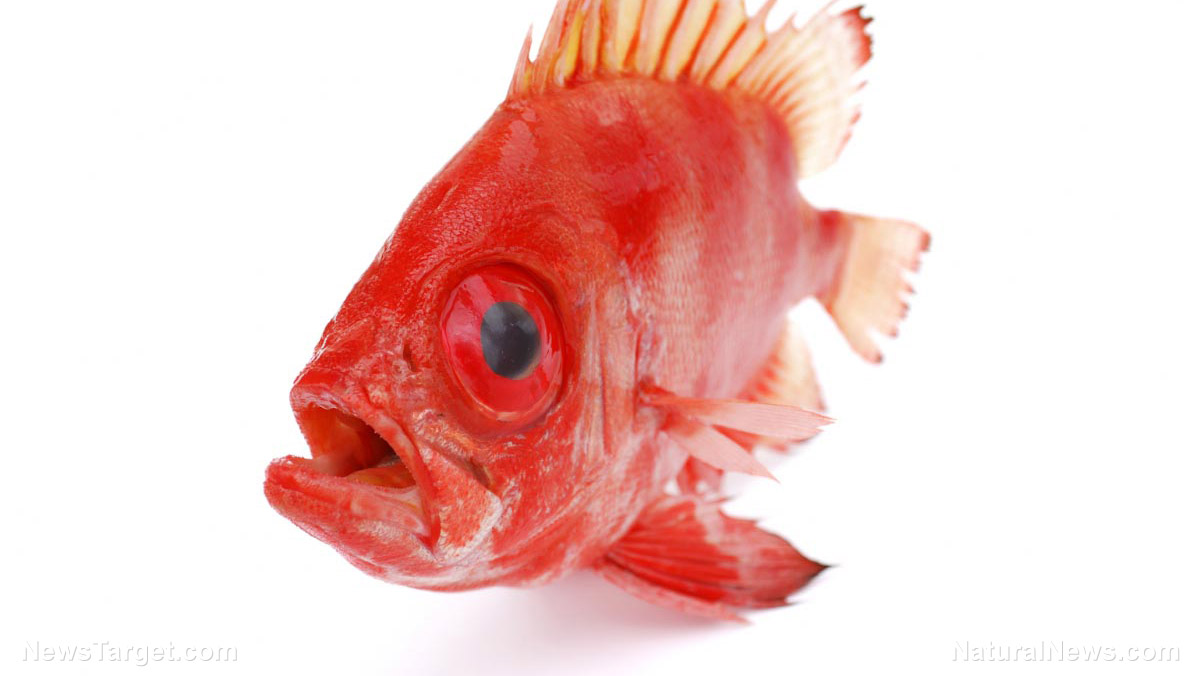Confirmed: Contraceptive drugs are turning fish into transgenders
07/17/2017 / By Amy Goodrich

Despite the evidence suggesting that there are many possible dangers associated with birth control drugs, an estimated 12 million women in the United States take an oral contraceptive, commonly referred to as “the pill,” to prevent pregnancy.
While birth control pills are convenient and, for the most part, effective at preventing unwanted pregnancies, they are not only harming the human body, they are also having a severe impact on the environment. Due to pollution and overuse of chemicals and drugs, a mix of endocrine disruptors is entering rivers via toxic waste and rain water at an alarming rate.
Professor Charles Tyler, a leading eco-toxicologist from the University of Exeter in Britain, and colleagues discovered that chemicals found in contraceptives and common household products (including by-products of cleaning agents, plastics, and cosmetics) that are flushed down the drain are giving rise to transgender or intersex fish in British rivers.
Their data showed that one fifth (or 20 percent) of male river fish, coming from 50 different sites, were displaying more feminine traits and some were even producing eggs in their testicles. The team also reported that the intersex fish were less aggressive and had a lower sperm count. All these factors combined made them less competitive, reducing their chances to breed successfully. Furthermore, offspring of transgender fish can be more sensitive to the effects of toxic exposure.
The research identified more than 200 chemicals
Tyler recently gave a keynote speech on the topic of transgender fish at the 50th Anniversary Symposium of the Fisheries Society in the British Isles at Exeter University, which was held at the beginning of July.
Tyler’s key findings originate from a 2008 research project — Roach, Sex, and Gender-Bending Chemicals: The Feminization of Wild Fish in English Rivers — he was involved in. During the study, the team identified more than 200 chemicals in river water.
Next to estrogen-like drugs, known to mess up the endocrine or hormonal system, the researchers also discovered other drugs, such as antidepressants, which could alter the fish’s natural behavior. Antidepressants have been shown to reduce the natural shyness of some fish species, making them more vulnerable to predators. Furthermore, the team also noted that estrogen found in some plastics may affect the valves in the heart.
“It all depends how feminized they become. If they are moderately to severely feminized, they are compromised as individuals and they really struggle to pass on their genes,” Tyler said. “One thing scientists are becoming much, much more conscious of now … is wildlife populations are exposed to a combination of stresses,” he added.
RT reported on a similar study from 2010 where researchers found that more than 80 percent of male bass fish in the Potomac River in Washington DC exhibited female traits, including eggs in their testicles.
A call for stricter regulations
The chemicals causing these effects are often flushed down the toilet without giving a second thought. Chemicals in contraceptives, cleaning products, and other household products not only threaten our health but that of the environment too. Therefore, Tyler called for better regulations and a ban on certain chemicals.
“It’s blindingly obvious when you stick a poison out and it kills something. It’s an incredibly difficult challenge to understand sub-lethal effects and how these things affect behavior,” Tyler said. “If we get sufficient evidence indicating there’s a high likelihood of a population effect, perhaps we need to be more proactive about restricting … or banning these chemicals,” he added.
Stay informed about the latest environmental news at Environ.news.
Sources include:
Tagged Under: Birth control, contraceptive, contraceptive drugs, Cosmetics, estrogen, hormone disruption, hormone disruptor, river fish, toxic water, transgender, transgenderism, waterways




















